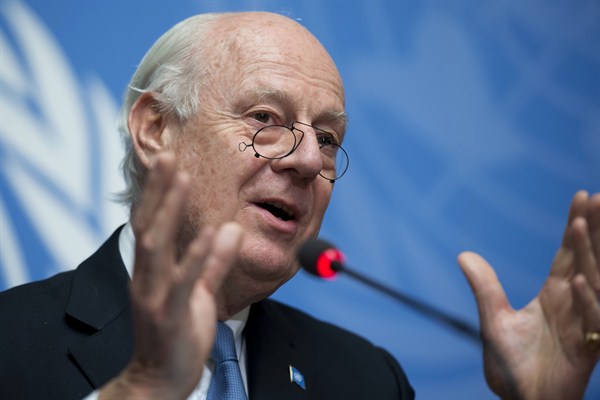The United Nations faces two nightmare scenarios in Syria, and U.N. officials have little or no power to choose between them. In one scenario, the current cessation of hostilities between the regime and rebels will break down irrevocably in the coming weeks or months, unleashing a new spiral of killing. That would instigate furious fights inside the Security Council and leave U.N. mediators with no cards left to play.
In the second scenario, the cessation of hostilities, which has been in place for 10 days despite multiple violations, could prove to be more durable than most observers expected. That might sound like good news. But it would also put the U.N. in the morally and politically invidious position of trying to consolidate peace on terms effectively set by President Bashar al-Assad and his allies in Moscow and Tehran.
In this case, U.N. officials in Syria will find themselves trapped in a dilemma that plagues their counterparts in places such as Darfur, the Democratic Republic of Congo (DRC) and South Sudan. As I argued in an essay last summer, “the UN’s greatest strategic weakness in these cases is that is has become entangled in fractious and arguably unethical relationships with national leaders who, driven by greed or fear, have little real interest in stable, open and inclusive political systems.”

